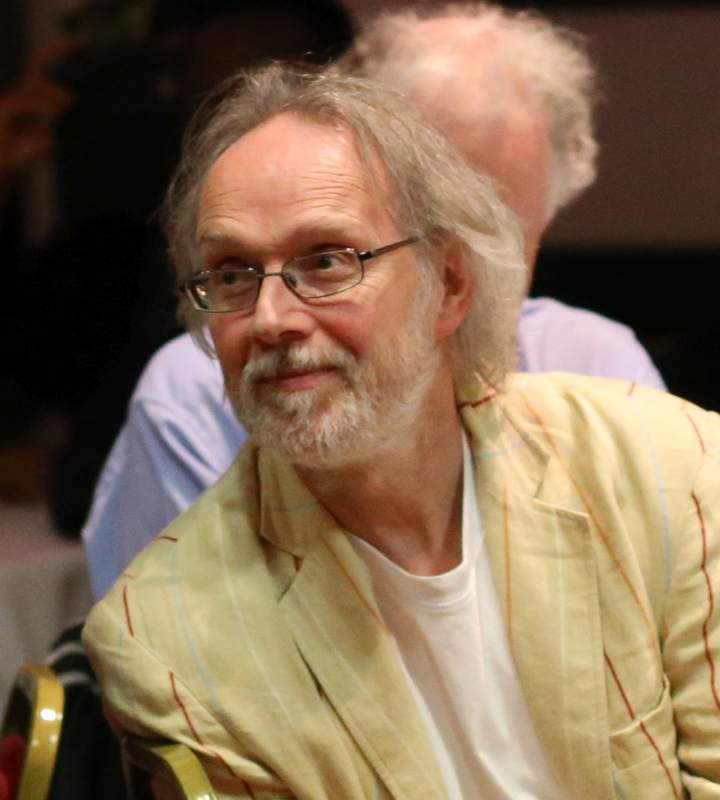Able, But Unready – Accelerated Children’s Learning and Development is a Toxic Phenomenon

Just because we can accelerate our children’s development, it doesn’t mean we should, says Richard House… I recently engaged in a ‘for’ and ‘against’ debate with a prominent advocate of ICT in early childhood. My key argument was centred on ‘accelerationism’ – the assumption that it’s appropriate and beneficent for young children’s development and learning […]

Just because we can accelerate our children’s development, it doesn’t mean we should, says Richard House…
I recently engaged in a ‘for’ and ‘against’ debate with a prominent advocate of ICT in early childhood. My key argument was centred on ‘accelerationism’ – the assumption that it’s appropriate and beneficent for young children’s development and learning to be accelerated.
Being Steiner-trained myself, I’m particularly aware of this issue – and once conscious of the phenomenon, tragically one starts to see it everywhere.
Mind object psychopathologies
70 years ago the great psychologist Donald Winnicott showed how, when experiencing early environmental deficiency/failure, young children often develop their mind prematurely or precociously as a survival-response to environmental deficiency, with their minds becoming their own care-taker. Such children typically grow up to have all manner of physical, psychological and psychosomatic health problems.
Psychoanalysts Edward Corrigan and Pearl-Ellen Gordon call this phenomenon the ‘mind object’. To expose young children to environments that artificially accelerate their development is to risk generating the very kind of ‘mind object’ lifelong psychopathologies that these psychologists outline in their clinical work. This path-breaking but tragically little-known work is consistent with the extraordinary findings of Professor Howard Freidman’s longitudinal ‘Longevity Project’, which discovered that people starting formal schooling earlier had significantly worse lifelong health and behavioural issues, and even tended to die younger (Chapter 6). Our policy-makers may therefore be making a very grave error in encouraging more quasi-formal learning and institutional childcare at ever-younger ages.
Pernicious practices
I’m amazed – and horrified – at how often this is often routinely assumed to be helpful and appropriate to accelerate young children’s learning. Yet in the wise words of my colleague, Professor Sebastian Suggate, ‘Ableness is not readiness.’ Just because we can get a young child to do certain things, it doesn’t at all follow that it’s either appropriate or healthy so to do. We urgently need to cultivate the developmental insight and pedagogical wisdom to tell the difference between ‘ableness’ and ‘readiness’, before our settings are swamped any further by pernicious accelerationist practices. Accelerationist ideology is driven by both our ‘economy-centred’ education system, and by the relentless trend towards ever-earlier ‘schoolification’ that accompanies this economy-centredness. When an economic system devalues the slow unfolding of early life and motherhood, and seeks to drive mothers of young children back into the workforce, this ideology starts to determine the early developmental and learning experiences of our young children – with possibly catastrophic long-term consequences. I know many practitioners, and to a person they believe that developmental appropriateness, rather than societal-economic imperatives, should determine pedagogical practices. Yet our economy-centred system is continually driving early years practice towards toxic accelerationism – principally in England, because of our absurdly early school starting age. We therefore see the infamous ‘good level of development’ defined and measured in terms of readiness for quasi-formal learning at a given (school-starting) age, rather than in terms of an informed age-sensitive framework for early development. So, what’s to be done? First, all practitioners, academics, trainers, students and parents need to become aware of this toxic phenomenon. Next, everyone needs to name and challenge it, whenever it’s spotted – especially in policy-making documents and injunctions, and in Ofsted’s behaviour.
Above all, it’s about raising consciousness and pedagogical awareness right across the field – so that our collective resistance to accelerationism makes it impossible to force our compliance with it. Richard House is the co-founder of the Open EYE campaign for an open early years education and the Early Childhood Action alliance











